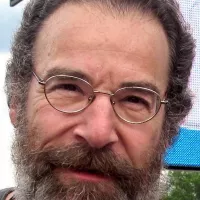Barbados is an island country located in the Atlantic Ocean, forming part of the Lesser Antilles in the West Indies. It holds the distinction of being the easternmost island in the Caribbean region, situated on the boundary between the South American and Caribbean plates. Bridgetown serves as its capital and largest urban center.
1938: Founding of the Barbados Labour Party
In 1938, Grantley Herbert Adams helped found the Barbados Labour Party (BLP).
1938: West Indies Royal Commission
In 1938, the British sent the West Indies Royal Commission, or Moyne Commission, due to increasing unrest and dissatisfaction on Barbados. The commission recommended reforms, including better conditions for workers and legalization of trade unions.
1950: Universal suffrage introduced
In 1950, universal suffrage was introduced in Barbados, allowing Afro-Barbadians to play a more prominent role in the colony's politics.
1953: Grantley Herbert Adams becomes Premier of Barbados
In 1953, Grantley Herbert Adams became the first Premier of Barbados.
1955: Hurricane Janet hits Barbados
In 1955, Hurricane Janet caused severe damage to Barbados.
1955: Formation of the Democratic Labour Party
In 1955, a group of left-leaning politicians broke off from the BLP and founded the Democratic Labour Party (DLP).
1958: Barbados joins the British West Indies Federation
In 1958, Barbados joined the short-lived British West Indies Federation.
1958: Hugh Gordon Cummins becomes Premier of Barbados
In 1958, Hugh Gordon Cummins became the Premier of Barbados.
1961: Enactment of Full Internal Self-Government
In 1961, full internal self-government was enacted in Barbados.
1961: DLP wins general election
In 1961, the Democratic Labour Party (DLP) won the Barbadian general election, and their leader Errol Barrow became premier.
1962: End of the British West Indies Federation
In 1962, Barbados was no longer part of the British West Indies Federation.
November 1966: Barbados becomes an independent country
Barbados has been an independent country since 30 November 1966.
November 1966: Barbados gains full independence
In November 1966, Barbados gained full independence, and Errol Barrow became the country's first prime minister. Barbados remained within the Commonwealth of Nations.
November 1966: Barbados moves toward political independence
In November 1966, Barbados transitioned toward political independence and became a Commonwealth realm, establishing a separate jurisdiction with Elizabeth II as the Queen of Barbados.
November 1966: Barbados functions as a two-party system
Since independence on 30 November 1966, the Democratic Labour Party (DLP) has governed from 1966 to 1976.
1974: Reintroduction of Crop Over festival
The Crop Over festival, which was established first in 1687, was reintroduced in 1974.
1976: BLP wins the Barbadian general election
In 1976, The DLP lost the Barbadian general election to the BLP under Tom Adams.
1976: Barbados functions as a two-party system
In 1976, the Barbados Labour Party (BLP) has governed from 1976 to 1986.
1983: Barbados supports US invasion of Grenada
In 1983, the Adams government allowed the Americans to use Barbados as the launchpad for their invasion of Grenada.
1985: Death of Tom Adams
In 1985, Tom Adams died in office and was replaced by Harold Bernard St. John.
1986: DLP returns to power
In 1986, the DLP under Errol Barrow returned to power after the Barbadian general election.
1986: Barbados functions as a two-party system
In 1986, the Democratic Labour Party (DLP) has governed from 1986 to 1994.
1990: Forest cover in Barbados in 1990
In 1990, forest cover in Barbados was around 6,300 hectares.
1992: Barbados joins The Forum of Small States
Barbados has been a member of The Forum of Small States (FOSS) since the group's founding in 1992.
1994: Lloyd Erskine Sandiford replaced as prime minister
In 1994, Lloyd Erskine Sandiford remained Prime Minister until 1994.
1994: Owen Arthur becomes Prime Minister
In 1994, Owen Arthur of the BLP won the Barbadian general election, becoming prime minister.
1994: Barbados functions as a two-party system
In 1994, the Barbados Labour Party (BLP) has governed from 1994 to 2008.
1995: Barbados becomes a member of the World Trade Organization
Barbados is an original member of the World Trade Organization (WTO) since 1995.
1999: Strong economy
In 1999, the economy of Barbados was strong.
2000: Barbados Open on European Seniors Tour
From 2000 to 2009, the Barbados Open, played at Royal Westmoreland Golf Club, was an annual stop on the European Seniors Tour.
2000: Obadele Thompson won a bronze medal in the 100m at the 2000 Summer Olympic Games
In 2000, sprinter Obadele Thompson won a bronze medal in the 100m at the 2000 Summer Olympic Games.
2000: Strong economy
In 2000, the economy of Barbados was strong.
September 2001: Impact of 11 September 2001 attacks in the United States
In September 2001, the Barbadian economy entered a recession due to decreases in tourism and consumer spending, impacted by the 11 September 2001 attacks in the United States.
2002: Recession
In 2002, Barbados was in a recession due to decreases in tourism and consumer spending.
2003: Airport Upgrade and Expansion
From 2003 to 2006, the Grantley Adams International Airport underwent a US$100 million upgrade and expansion.
2003: Economy Rebound
In 2003, the economy of Barbados rebounded.
2003: Unemployment Drops
In 2003, unemployment in Barbados dropped to 10.7%.
2004: Economic Growth
From 2004 to 2008, the economy of Barbados grew.
July 2005: Impact of 7 July 2005 London bombings in the United Kingdom
In July 2005, the Barbadian economy was negatively affected by the 7 July 2005 London bombings in the United Kingdom, contributing to a recession.
2005: Barbados replaces Judicial Committee of the Privy Council
In 2005, Barbados replaced the Judicial Committee of the Privy Council with the Caribbean Court of Justice as its final court of appeal.
December 2006: WGC-World Cup at Sandy Lane resort
In December 2006, the WGC-World Cup took place at the country's Sandy Lane resort on the Country Club course, an 18-hole course designed by Tom Fazio.
2006: Airport Upgrade and Expansion
From 2003 to 2006, the Grantley Adams International Airport underwent a US$100 million upgrade and expansion.
2006: Fifth-place finish in the Commonwealth Games
In 2006, The Barbados men's national basketball team achieved a fifth-place finish in the 2006 Commonwealth Games.
December 2007: Barbados linked by an Economic Partnership Agreement with the European Commission
As of December 2007, Barbados is linked by an Economic Partnership Agreement with the European Commission.
2007: Host of the 2007 Cricket World Cup Final
In 2007, Barbados hosted the final of the 2007 Cricket World Cup.
2007: Construction boom due to the staging of the 2007 Cricket World Cup
Partly due to the staging of the 2007 Cricket World Cup, the island saw a construction boom in Barbados.
2008: Economic Growth and Recession
From 2004 to 2008, the economy of Barbados grew. However, in 2008 the economy went into recession again.
2008: DLP wins the Barbadian general election
In 2008, the DLP won the Barbadian general election.
2008: Barbados functions as a two-party system
In 2008, the Democratic Labour Party (DLP) has governed from 2008 to 2018.
2008: GDP spending on education
In 2008, the government of Barbados spends 6.7% of its GDP on education.
2008: World economic crisis
The construction boom slowed during the 2008 world economic crisis in Barbados.
2009: Consideration of International Securities Market (ISM)
As of 2009, officials at the Barbados stock exchange were investigating the possibility of augmenting the local exchange with an International Securities Market (ISM) venture.
2009: Barbados Open on European Seniors Tour
From 2000 to 2009, the Barbados Open, played at Royal Westmoreland Golf Club, was an annual stop on the European Seniors Tour.
2009: First brew of 10 Saints beer
In 2009, 10 Saints beer was first brewed in Speightstown, St. Peter in Barbados and aged for 90 days in Mount Gay 'Special Reserve' Rum casks.
2009: Closure of Bajan Helicopter
Until 2009 when Bajan Helicopter closed their doors, they offered helicopter shuttle services.
2010: Hurricane Tomas strikes Barbados
In 2010, Hurricane Tomas struck Barbados, but caused only minor damage.
2010: David Thompson dies
In 2010, the new Prime Minister David Thompson died and was replaced by Freundel Stuart.
2010: Barbados national census
The 2010 national census conducted by the Barbados Statistical Service reported a resident population of 277,821, of which 144,803 were female and 133,018 were male.
2012: Self-study reveals poverty rate in Barbados
According to a 2012 self-study, 20% of Barbadians live in poverty.
2012: Recession
The construction boom slowed during the 2012 recession in Barbados.
2013: End of recession
The Barbadian economy was in recession from 2008 to 2013, before growing from 2014 to 2017.
2014: Economic Growth
From 2014 to 2017, the economy of Barbados grew.
2014: Race of Champions at Bushy Park Circuit
In 2014, the Bushy Park Circuit hosted the Race of Champions.
2015: Forest ownership in Barbados
For the year 2015, 1% of the forest area was reported to be under public ownership, 0% private ownership and 99% with ownership listed as other or unknown in Barbados.
2015: Unemployment Increase
In the second quarter of 2015, unemployment in Barbados increased to 11.9%.
2016: Biocapacity in Barbados
In 2016, Barbados had 0.17 global hectares of biocapacity per person within its territory and used 0.84 global hectares of biocapacity per person. This resulted in Barbados running a biocapacity deficit.
2016: Darian King played in the 2016 Summer Olympics
In 2016, Darian King played in the 2016 Summer Olympics.
2016: Downgrades by Standard & Poor's and Moody's
There were 23 downgrades by both Standard & Poor's and Moody's in 2016, 2017 and 2018.
May 2017: Career-high ranking of Darian King
In May 2017, Darian King achieved a career-high ranking of 106.
2017: Economic Decline
From 2017 to 2019, the Barbadian economy declined into another recession during the world economic crisis.
May 2018: Outstanding Debt Climbs
By May 2018, Barbados's outstanding debt had climbed to US$7.5 billion, more than 1.7 times the country's GDP.
June 2018: Government Default
In June 2018, the government of Barbados defaulted on its sovereign debt when it failed to make a coupon on Eurobonds maturing in 2035. Outstanding bond debt of Barbados reached US$4.4 billion.
2018: BLP returns to power under Mia Mottley
In 2018, the BLP returned to power under Mia Mottley, who became Barbados's first female prime minister.
2018: Barbados functions as a two-party system
In 2018, the Barbados Labour Party (BLP) has governed from 2018 to present.
2018: Downgrades by Standard & Poor's and Moody's
There were 23 downgrades by both Standard & Poor's and Moody's in 2016, 2017 and 2018.
2019: Religion in Barbados
In 2019, Christianity was the largest religion in Barbados, with the largest denomination being Anglican (23.9% of the population).
2019: Signs of recovery
In 2019, the Barbadian economy showed signs of recovery with 3 upgrades from Standard and Poor's and Moody's.
March 2020: Economic decline due to COVID-19
From 1 January to 31 March 2020, the Barbadian economy had started to grow, but then it experienced another decline in March 2020 due to the COVID-19 economic recession.
July 2020: Barbados Transport Board receives BYD electric buses
In July 2020, the Barbados Transport Board received 33 BYD electric buses to add to the ageing fleet and to assist the Government in their goal of eliminating the use of fossil fuels by 2030.
September 2020: Barbados announces intention to become a republic
On September 15, 2020, the Government of Barbados announced its intention to become a republic by November 30, 2021, the 55th anniversary of its independence.
2020: Life expectancy for Barbados residents
As of 2020, the life expectancy for Barbados residents is 80 years.
2020: Forest cover in Barbados
In 2020, forest cover in Barbados was around 15% of the total land area, equivalent to 6,300 hectares.
September 2021: Constitution Amendment Bill introduced
On September 20, 2021, the Constitution (Amendment) (No. 2) Bill, 2021 was introduced to the Parliament of Barbados, to introduce the office of the president.
October 2021: University of the West Indies survey
In October 2021, a survey by the University of the West Indies showed 34% of respondents favored transitioning to a republic.
October 2021: Constitution Amendment Bill passed
In October 6, 2021, the Constitution (Amendment) (No. 2) Bill, 2021 was passed, introducing the office of the president of Barbados.
October 2021: Sandra Mason elected first president
On October 12, 2021, Sandra Mason was nominated, and subsequently elected on 20 October 2021 as the first president of Barbados.
November 2021: Barbados to become a republic
Barbados announced that it intended to become a republic by 30 November 2021.
November 2021: University of the West Indies survey
In November 2021, a survey by the University of the West Indies showed 34% of respondents favored transitioning to a republic.
November 2021: Sandra Mason takes office
On November 30, 2021, Sandra Mason took office as the first president of Barbados.
2021: Infant mortality rate
According to UNICEF, the infant mortality rate in Barbados was 11.057 infant deaths per 1,000 live births in 2021.
2021: Rihanna Appointed as National Hero
In 2021, Rihanna was appointed as a National Hero of the country by Prime Minister Mia Mottley, during its presidential inauguration, which served to mark the country becoming a republic.
2021: Religious affiliation in Barbados
Nearly half (45.5%) of all Barbadians reported no religious affiliation whatsoever in the 2021 Census.
June 2022: Constitutional Review Commission formed
On June 20, 2022, a Constitutional Review Commission was formed and sworn in by Jeffrey Gibson to review the Constitution of Barbados.
August 2022: First Olympics medalist in the Barbados
As of August 2022, Obadele Thompson was the first Olympics medalist in the Barbados.
August 2023: Constitutional Review Commission report delayed
In August 2023, the report from the Constitutional Review Commission was announced as delayed.
December 2023: Negotiations for additional airport development
In December 2023, Prime Minister Mia Mottley announced the negotiations for a US$300 million for additional airport development.
June 2024: Constitutional Review Commission final report submission
In June 2024, the final report from the Constitutional Review Commission was submitted.
2024: Global Innovation Index ranking
Barbados was ranked 77th in the Global Innovation Index in 2024.
2024: ICC Men's T20 World Cup
In 2024, Barbados hosted the 2024 ICC Men's T20 World Cup.
2029: New Debt Series Maturing
In October 2019, creditors will exchange existing bonds for a new debt series maturing in 2029.
2030: Goal of eliminating the use of fossil fuels
The Government of Barbados aims to eliminate the use of fossil fuels by 2030.
2035: Eurobonds Maturity
In June 2018, the government of Barbados defaulted on its sovereign debt when it failed to make a coupon on Eurobonds maturing in 2035.
Mentioned in this timeline

Basketball is a team sport played on a rectangular court...

Robyn Rihanna Fenty is a highly successful Barbadian singer actress...

Elizabeth II reigned as Queen of the United Kingdom and...

The ICC Men's Cricket World Cup is a quadrennial international...

Music is a cultural universal involving the arrangement of sound...
The modern Olympic Games are a leading international sporting event...
Trending

The Miracle on Ice was an unexpected victory by the United States men's ice hockey team over the heavily favored...
8 months ago Chiefs Dominate 2025 NFL Schedule with Seven Prime-Time Games

Mandel Mandy Bruce Patinkin is a versatile American actor and singer recognized for his work in musical theatre television and...

8 months ago Trump's White House Rose Garden Paving Sparks Controversy After Melania's Redesign; Bulldozing Begins.
2 months ago Hall High School in West Hartford went into secure mode; no weapon found.

3 months ago Upstart's Q3 Earnings: Mixed Results, Soft Q4 Guidance, and Stock Slides After Announcement.
Popular

Thomas Douglas Homan is an American law enforcement officer who...

XXXTentacion born Jahseh Dwayne Ricardo Onfroy was a controversial yet...

William Franklin Graham III commonly known as Franklin Graham is...

Jupiter is the fifth and largest planet from the Sun...

Instagram is a photo and video-sharing social networking service owned...

KFC or Kentucky Fried Chicken is an American fast-food chain...